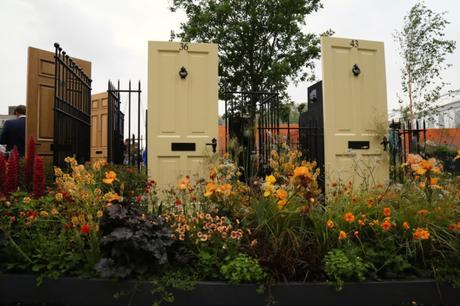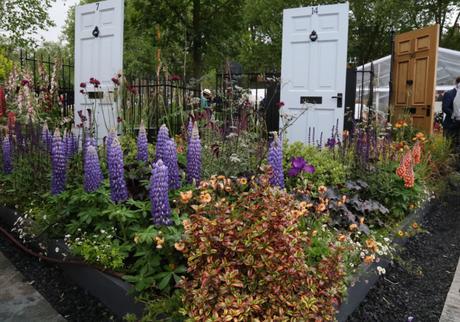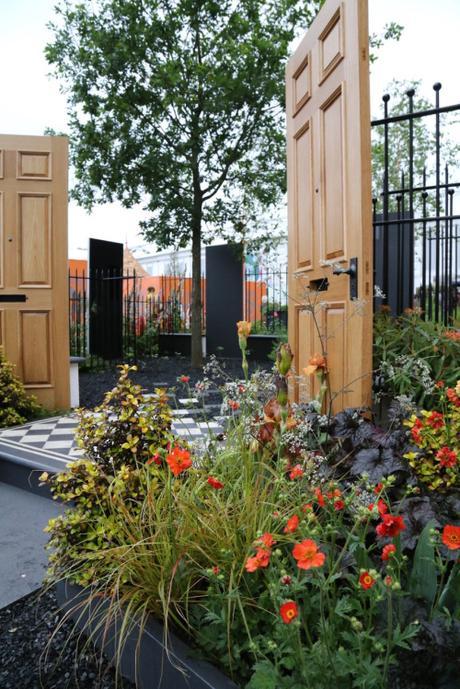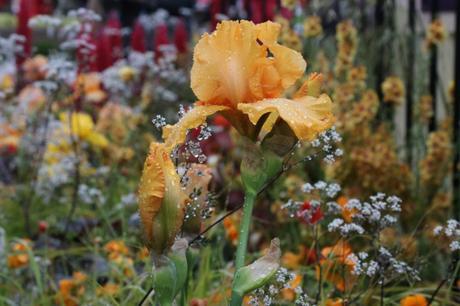Amongst the madness, beauty and razzmatazz of Chelsea this year, there was a garden with a powerful message. The Modern Slavery Garden, designed by Juliet Sargeant, the first female black designer in Chelsea’s 103 year history.

Modern Slavery Garden
Behind the closed doors, a dark center – charcoal floor, dark railings and door backs representing a hidden reality of men, women and children trapped in modern day slavery. The tall Oak planted within, symbolising the Oak Wilberforce stood under in 1788 with William Pitt discussing the campaign to abolish slavery.
The door numbers represent deeply moving statistics from the 2014 Global Slavery Index. Men, women and child human trafficking and forced labor. Sex slavery, debt bondage, domestic servitude, child marriage, organ harvesting, forced agriculture labour, factories and sweatshops, producing goods for global supply chains, even nail bar forced labor.

Modern Slavery Garden doors
The small oak saplings at the base of the large Oak tree were grown by modern slavery survivors on an allotment run by the Medaille Trust, a Salvation Army partner, on a UK south coast allotment they use as part of their recuperation and recovery from their experiences of exploitation.

Modern Slavery Garden
The open Oak doors and colourful planting represent freedom beyond the bleakness.
The UK Modern Slavery Act was passed last year, and from April 1st 2016 for the first time, companies with a turnover of more than £36m must declare what they are doing about slavery, within their companies and their supply chains – (Last year there was a successful prosecution of a bed company in Yorkshire using trafficked slave labor supplying several prestigious UK stores).

Modern Slavery Garden Planting
However, as yet there are no repercussions if companies choose not to publish these reports, its early days. Hopefully this legislation will be further tightened. As consumers we can challenge companies making huge profits from others bleak slave misery. A new campaign promoted by the Modern Slavery Garden to coincide with the first wave of disclosures in April 2016, gives power to the public to challenge the labor ethics of products and suppliers. Folk are encouraged to photograph the product with the hashtag #askthequestion via social media and publicly ask for answers.
Today, a few days after Chelsea closed the Global Slavery Index has released new 2016 figures, and reports a 10 million increase – 45.8 million men, women and children are modern slaves. 13,000 within the UK. Victims here are both vulnerable people in the UK and trafficked from overseas, forced to work illegally.
What kind of world is this?
Having been on the verge of giving up Chelsea visits, tired of hotel gardens and greenhouses the price of houses, its refreshing to see the RHS accept new challenging designs. Chelsea is eclectic and eccentric, filled with passion and excellence but so valid to find thought provoking emotive gardens too. Juliet won both a well deserved gold medal and the Peoples Choice in the Fresh category.
